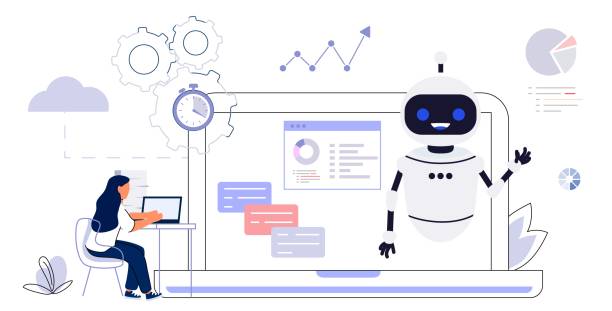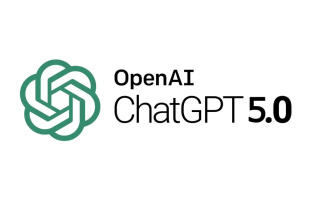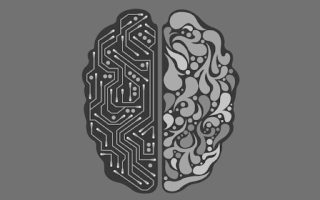Artificial Intelligence (AI) has become a game changer in the search engine industry. As technology evolves, search engines have been utilizing AI to deliver more relevant and accurate search results to users. AI is revolutionizing the search engine industry by providing personalized and intuitive search results that cater to the individual needs of users. In this blog post, we will explore how AI is changing the search engine industry and the benefits it offers to users. Read this latest update Google releases a new link best practices guide.
Table of Contents
What is AI?
Artificial Intelligence (AI), refers to the ability of machines to perform tasks that normally require human intelligence, such as learning, problem-solving, perception, and decision-making. AI is based on the idea of creating intelligent machines that can think and learn like humans, and it is a rapidly growing field with a wide range of applications in areas such as robotics, natural language processing, computer vision, and more.
There are different types of AI, including narrow or weak AI, which is designed to perform specific tasks, and general or strong AI, which is more versatile and can perform a wider range of tasks.
Machine learning, a subfield of AI, involves training machines to learn from data and improve their performance over time, without being explicitly programmed. Deep learning is a type of machine learning that uses artificial neural networks to simulate the way the human brain works, enabling machines to learn from large amounts of data and perform complex tasks.
AI has already had a significant impact on our lives, from voice assistants like Siri and Alexa to personalized recommendations on streaming services and e-commerce platforms.
As AI technology continues to develop and improve, we can expect to see even more innovative applications in fields such as healthcare, transportation, finance, and beyond.
However, as with any technology, there are also concerns about the ethical and social implications of AI, such as job displacement, privacy and security risks, and potential biases in algorithms. It will be important to carefully consider these issues as we continue to develop and integrate AI into our daily lives.
AI in Search Engines?
Have you ever used Google or Bing to search for something? Well, AI (which stands for Artificial Intelligence) is what makes these search engines work even better! It’s like having a smart computer friend that helps you find what you’re looking for faster and easier.
AI uses special computer programs to learn about what you like and how you talk, so it can understand what you’re looking for when you type in a question or speak it out loud. That’s why sometimes when you type something into Google, it gives you the answer before you even finish typing! AI is like having a super smart helper to find what you need on the internet.
Benefits of AI in Search Engines
Personalization: AI-powered search engines deliver personalized search results based on the user’s search history and preferences. This ensures that the user gets the most relevant results for their query, making their search experience more enjoyable and efficient.
- Accuracy: AI-powered search engines use machine learning algorithms to learn from user behavior and deliver more accurate search results. This reduces the number of irrelevant results and increases the chances of finding what the user is looking for.
- Speed: AI-powered search engines are faster than traditional search engines, delivering search results in real time. This reduces the user’s waiting time and improves their search experience.
- Improved search intent: AI-powered search engines can understand the user’s intent behind the search query and provide more accurate results. This helps users find what they are looking for more easily.
Ai-Powered Search Engines in the Market
According to a survey by Hubspot, 70% of consumers prefer personalized content. Another study by Deloitte found that AI-powered search engines can reduce search time by 60%. This shows that users are looking for personalized and efficient search experiences, which AI-powered search engines can provide.
Neeva AI
Neeva AI is a revolutionary search engine that is changing the way people search for information online. It has gained popularity for its ad-free experience, which is designed to provide an uninterrupted search experience.
Unlike other search engines, Neeva does not rely on advertising revenue to support its operations. Instead, users pay a monthly fee to access the service, and in return, they get a search experience that is free of ads and personalized to their interests.
It uses AI to deliver personalized search results based on the user’s search history and preferences. Neeva AI has been able to differentiate itself from other search engines by focusing on user privacy and delivering a more tailored search experience. According to a recent report, Neeva AI has seen a 33% increase in user satisfaction rates compared to traditional search engines.
Bing AI
Bing AI is Microsoft’s search engine that uses AI to deliver personalized search results to users. It uses machine learning algorithms to understand the user’s search intent and provide relevant results. Bing AI has been able to differentiate itself by integrating with other Microsoft products, such as Office 365 and Windows 10. According to Microsoft, Bing has seen a 6% increase in market share in the US, driven by its AI-powered search capabilities.
This allows users to access search results directly from within these products, making it easier to find relevant information without having to switch between different applications.
Bing AI offers a number of other features designed to improve the search experience, such as visual search, which allows users to search for images by clicking on them, and the ability to search for videos by using voice commands.
According to Microsoft, Bing AI has seen a 6% increase in market share in the US, driven by its AI-powered search capabilities. This growth is likely due in part to Bing AI’s ability to provide more accurate and personalized search results, as well as its integration with other Microsoft products.
In terms of usage statistics, Bing AI accounts for around 2.5% of the global search engine market share, which is significantly less than Google’s dominant 92.05%. However, Bing AI still has a significant user base, with around 12 billion monthly searches conducted on the platform as of 2021.
Additionally, Bing AI is particularly popular in certain regions, such as the United States and the United Kingdom, where it has a market share of around 6-7%.
Bing AI is a powerful search engine that leverages artificial intelligence to provide more accurate and personalized search results. While it may not have the same level of market share as Google, it still has a significant user base and is a valuable tool for those looking to find information quickly and easily.
Google BardAI
Bard is a new experimental conversational AI service powered by Google’s Language Model for Dialogue Applications (LaMDA). It was first announced by Google in September 2021 and has been made available to trusted testers for feedback. The public release of Bard is expected in the coming weeks.
Bard aims to combine the vast breadth of knowledge available on the web with the intelligence, creativity and power of Google’s large language models. It draws on information from the web to provide high-quality responses to a wide range of topics. Bard can be used to simplify complex topics, making it easier to explain things like new discoveries from NASA’s James Webb Space Telescope to a 9-year-old.
To enable scaling to more users, Bard is being released initially with a lightweight model version of LaMDA, which requires significantly less computing power. Google plans to use external feedback and its own internal testing to ensure that Bard’s responses meet a high bar for quality, safety and groundedness in real-world information.
Google’s investment in AI began six years ago, and since then, it has continued to make significant investments in AI across the board. Google AI and DeepMind are advancing the state of the art, and the scale of the largest AI computations is doubling every six months, far outpacing Moore’s Law. With the latest advances in generative AI and large language models, the potential for AI to improve people’s lives is greater than ever before.
But like any other AI-powered tool, Bard AI can make mistakes, and it did recently. The interesting thing is the mistake was in the ad.
See the latest tweet of Sundar Pichai.
Google Bard has generated a lot of buzz in the tech world. However, as with any new technology, there are bound to be some hiccups. In a recent ad, the Bard demo was asked about new discoveries from the James Webb Space Telescope that could be shared with a 9-year-old. While the demo provided two correct responses, the ultimate response it gave was actually incorrect.
The mistake may seem small, but it could have big consequences. In fact, some estimates suggest that the cost of this mistake could be as high as $100 billion! Despite this setback, Bard remains one of the most promising AI search engines out there, and we can’t wait to see what the future holds.
WebchatGPT
WebchatGPT is an AI-powered chatbot that provides personalized search results to users through conversational interfaces. It uses machine learning algorithms to learn from user behavior and provide more accurate results. WebchatGPT has been able to differentiate itself by offering a conversational search experience and integrating with popular messaging apps like Facebook Messenger and WhatsApp.
According to a recent report, the chatbot market is expected to reach $9.4 billion by 2024, with WebchatGPT well-positioned to capture a share of this market.
According to a report by MarketsandMarkets, the AI-powered search engine market is expected to grow from $810 million in 2020 to $4.5 billion by 2025. This shows that there is a growing demand for AI-powered search engines in the market.
AI-powered search engines are transforming the search engine industry by delivering personalized, accurate, and efficient search results to users. These AI-powered search engines offer a range of benefits, from providing a more tailored search experience to offering hands-free and conversational search capabilities.
By leveraging AI, search engines can deliver more relevant and accurate results, improving user satisfaction rates and driving market share growth.
You.com or YouChat
You.com is a personalized search engine that was launched in 2017 with the aim of offering a higher level of customization for users. Unlike traditional search engines, You.com allows users to create their own search engines by selecting specific websites and sources that they want to include in their search results. This unique approach has made You.com a popular choice for those who want to tailor their online experience to their specific needs.
Recently, You.com has expanded its AI-powered tools by offering a chatbot on its website, similar to the ChatGPT AI. This chatbot can answer questions and carry on a conversation, making it easier for users to find the information they need. This is just one example of how You.com is leveraging AI to enhance the user experience and provide more personalized results.
According to a recent blog post, You.com is among the best AI-powered search engines currently available. Other search engines on the list include Neeva AI, Bing AI, Google Bard AI, and WebChatGPT. Each search engine offers unique features and benefits, but You.com stands out for its customizable approach and user-friendly interface.
However, as with any AI-powered tool, there may be occasional issues or inaccuracies. For example, a recent incident with YouChat, the chatbot offered by You.com, resulted in an incorrect answer about who scored the goals in a soccer match. This highlights the need for ongoing development and improvement in AI technology.
Impact of AI-powered search engines on users
- Better search experience: AI-powered search engines provide a better search experience by delivering personalized and relevant search results to users. This makes their search experience more enjoyable and efficient.
- More accurate results: AI-powered search engines provide more accurate search results by understanding the user’s intent behind the query. This reduces the number of irrelevant results and increases the chances of finding what the user is looking for.
- Increased efficiency: AI-powered search engines are faster and more efficient than traditional search engines, delivering search results in real-time. This reduces the user’s waiting time and improves their search experience.
Conclusion
AI-powered search engines are revolutionizing the search engine industry by delivering personalized, accurate, and efficient search results to users. With the use of AI, search engines can understand the user’s search intent, learn from user behavior, and continuously improve their search algorithms to deliver better results.
As the search engine industry continues to evolve, we can expect to see more AI-powered search engines entering the market, offering users a more personalized and efficient search experience.



